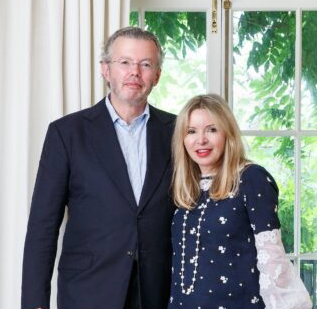Following the pandemic, the sector might have been fooled into thinking 2022 would be a bit calmer – but no such luck. Charity Times takes a look at the biggest news over the last 12 months.
_________________________________________________________
Attempting to summarise the events of 2022 is not an easy task. After all, how do you condense a year which saw a revolving door of Prime Ministers, the passing of Her Majesty The Queen and the beginnings of a huge economic crisis?
The year has been just as jarring for charities, who have been busy attempting to keep up with this scale of change.
In January, charities were warned to prepare their organisations for a cost-of-living squeeze that could last two years when consumer price inflation (CPI) hit 5.5%. Pro Bono
Economics warned that salaries would need negotiating and donations wouldn’t go as far.
In April, CPI then hit 9%, and there was a notable link between a decline in donations and the cost of living ‘squeeze’. This was partly as a result of the war in Ukraine, which began in February and food prices began to shoot up. By May, charities were again warned of what was to come, with a ‘tidal wave of demand’ on the horizon.
In September, inflation hit a record high of 10.5% and a survey released in October, conducted by London Funders, saw a “genuine sense of desperation” among charities. “There is a ‘genuine sense of desperation’, as one respondent reported, with organisations being forced to ‘shoehorn’ their ideas into grant criteria.” It added that “many funders were despondent about how they would be able to match the scale of demand or make a long-term impact given the levels of need”.
One funder said: “Front line organisations are reporting fatigue, not having recovered from the impact of covid. How do we protect the mental health of those on the front line?”
Another told London Funders: “Some of our grantee organisations are reporting that their own staff are struggling with living costs, and some are referring their staff as well as beneficiaries to food banks.”
In the same month, seven in 10 charities then reported that people were accessing their services for help for the first time. Just under nine in 10 (89%) said they are worried they cannot meet the extra demand, the survey by FareShare revealed.
Who’s the new minister?
The consequences of inflation weren’t helped by the turbulent political climate in the latter half of 2022. Former Prime Minister Boris Johnson resigned in July and was replaced in September by Liz Truss, who was then replaced by Rishi Sunak in October.
Of course, Prime Minister wasn’t the only ministerial job that had a seemingly revolving door. Sunak was the chancellor until he resigned in July, replaced by Nadhim Zahawi for until Kwasi Kwarteng replaced him in September until he eventually resigned in October. He was finally replaced by Jeremy Hunt, who, at time of writing, is the current chancellor (although this is always subject to change).
Hunt faces an uphill battle as he aims to combat inflation and growing dissent about the economy after Kwarteng’s mini-budget led to market turmoil and a jump in government borrowing costs. Many of these policies have since been reversed by Hunt.
The role of Minister for Civil Society also had a record number of changes. The year began with Nigel Huddleston in post, who was one of the only ministers to not resign in the wave before Johnson left, lasting until September when Lord Syed Kamall took on the post. He was then replaced by Stuart Andrew in October, where the role was diluted further than ever before.
A volunteer army Amidst the political turmoil in September and during Truss’ 50-day premiership, the Queen suddenly passed away. Her death meant that the charities of which she was a patron went into an official mourning period and charities came together to create a ‘volunteer army’ to help those who went to see her lying in state. Despite the sad circumstances, the work the sector did left an impression on the public.
Over 1,000 volunteers helped with the queue, which snaked around Westminster and along the river to parts of South-East London. The volunteers included around 120 Scouts, 180 volunteers from Samaritans, in addition to 140 British Red Cross and Salvation Army volunteers, with others from First Aid Nursing Yeomanry.
St John Ambulance volunteers were also present to provide first aid. It had up to 2,000 volunteers and 30 bases, from pop-up treatment centres to purpose-built temporary field hospital facilities in Hyde Park, St James’s Park and by LancasterHouse, while in Windsor it
provided treatment centres, first aiders and ambulances.
Mike Gibbons, commissioner of operations for the charity, said: “In our planning for this sad occasion, we estimated we’d need around a thousand volunteers, but more than double that have said they can make themselves available.”
The war on ‘woke’
Despite the positives the sector can bring, in 2022, charities were increasingly under more pressure by those waging a ‘war on woke’.
In January, NCVO warned that charities needed to be ‘braver’ in tackling culture war threats following comments in 2021 from politicians around a so-called ‘woke’ agenda being pursued by charities, including charities addressing slave trading pasts and the RNLI saving migrants attempting to cross the channel.
“In the voluntary sector, we have seen politicians criticise some charities for their stance on these issues,” said the NCVO’s annual Road Ahead report.
“Politicians are likely to continue to seek dividing lines where they feel there is political advantage in doing so, so we should expect that culture wars will be a part of our political environment in the years ahead.”
In the last 12 months, issues such as transgender rights and ‘anti-woke’ calls to halt support for Pride were brought to the forefront. Transgender youth support charity, Mermaids, had to close its helpline service on Wednesdays and reduce its hours after coverage in national newspapers caused backlash and abuse aimed at the charity.
The National Trust also faced challenges, with the Restore Trust lobby group attempting to gain control of the charity, and recommendations from members condemning the charity’s involvement in Pride parades and rewilding its farmland. However, the AGM, held in November, rejected the recommendations.
Restore Trust also failed to see any of its candidates win council seats at the AGM after heavy support for the charity on social media leading up to the votes.
“Pride promotes and celebrates LGBTQ+ rights across the globe,” said the National Trust in a position statement from its board.
“The Trust has been supporting participation in Pride for many years. This includes enabling staff and volunteers to take part in celebrations, running virtual events and sharing information.
“We support Pride alongside many other events each year, including Black History Month, Mental Health Awareness Week and others. The National Trust’s role is to protect and promote everyone’s heritage, of which LGBTQ+ history is an important part.
A divisive chair
Politics has played a heavy part in news this year, with the first half of the year taken up by the appointment of the Charity Commission chair, Orlando Fraser.
In MPs scrutiny of his appointment, members of the Digital, Culture,Media and Sport select committee said that his selection had been “slapdash and unimaginative”.
Fraser had been rejected from a previous recruitment process that saw the government select Martin Thomas as the next chair.
However, Thomas was forced to quit in 2021, just days before taking office, after it emerged he had been under investigation for inappropriate behaviour at a charity he had chaired.
Charities also criticised the decision, calling it a mistake not to re-run the appointment process. Alex Farrow, head of networks and influencing at NCVO said: “We have argued for a long time that parliament needs to be central to the process of appointing the Chair of the Charity Commission. The government should carefully consider the implications of continuing to appoint a candidate who does not have the backing of parliament.”
But Fraser stressed that the regulator would remain independent, denying that the government will have any influence over the regulator.
“I wouldn’t have the charity commission being the arm of the government,” he said when questioned in front of MPs.
Dodging diversity
During the appointment process, MPs also raised concerns about a lack of diversity in Fraser’s selection process and charity sector leaders had called for the appointment process to be re-run following the Thomas debacle.
An exclusive report in June revealed that only one candidate from a Black or minority ethnic background (BAME) has been shortlisted over the last four years to chair the Charity Commission. And according to available records for the last four years, no candidate with a
disability has been shortlisted and there have only been three female candidates interviewed.
Among the eight applicants selected for interview in 2021, which then was used for two appointment processes, just one was female, one from a BAME background and none
had a declared disability.
This reflected many other reports during the year. Charity Times research published in August found that only eight people of colour have ever been CEO at the UK’s most popular charities. Out of those eight, only one was female. In contrast, there were 16 named David, 15 Mike or Michael and 13 named Jonathan or John.
But a demand for greater diversity in the sector was clear after a number of inquiries found institutional racism at some of the country’s biggest charities including Macmillan and Amnesty UK.
Another report found that charities should consider collecting data on class diversity among staff alongside their wider policies to improve equality in their organisation. The move is needed as part of a raft of measures to counter a lack of working-class leaders in charities, it adds. The vast majority (94%) of charity and think tank staff from a working-class background think their sector has a “class diversity problem”.
“Many felt there was a reluctance to discuss class diversity and inclusion,” stated the report by Manchester based charity Reclaim, which promotes leadership skills among young working-class people. The charity said that a lack of class diversity conversations within the sector is “odd given the nature of anti-poverty work and the increased political interest in listening to working class voters”.
But charities are looking to change. In October, more than 40 environmental charities pledged to take action to tackle racism and a lack of equality, diversity and inclusion in their sector. The ‘route map’ for change is being backed by 42 charities including the RSPB and the Wildlife Trust.
So, it looks like there is hope for greater diversity at the very least, and it will be interesting to see what 2023 brings.
Will the charity sector finally catch a break?
Charity Times video Q&A: In conversation with Hilda Hayo, CEO of Dementia UK
Charity Times editor, Lauren Weymouth, is joined by Dementia UK CEO, Hilda Hayo to discuss why the charity receives such high workplace satisfaction results, what a positive working culture looks like and the importance of lived experience among staff. The pair talk about challenges facing the charity, the impact felt by the pandemic and how it's striving to overcome obstacles and continue to be a highly impactful organisation for anybody affected by dementia.
Charity Times Awards 2023
Mitigating risk and reducing claims

The cost-of-living crisis is impacting charities in a number of ways, including the risks they take. Endsleigh Insurance’s* senior risk management consultant Scott Crichton joins Charity Times to discuss the ramifications of prioritising certain types of risk over others, the financial implications risk can have if not managed properly, and tips for charities to help manage those risks.
* Coming soon… Howden, the new name for Endsleigh.
* Coming soon… Howden, the new name for Endsleigh.
Better Society

© 2021 Perspective Publishing Privacy & Cookies











Recent Stories